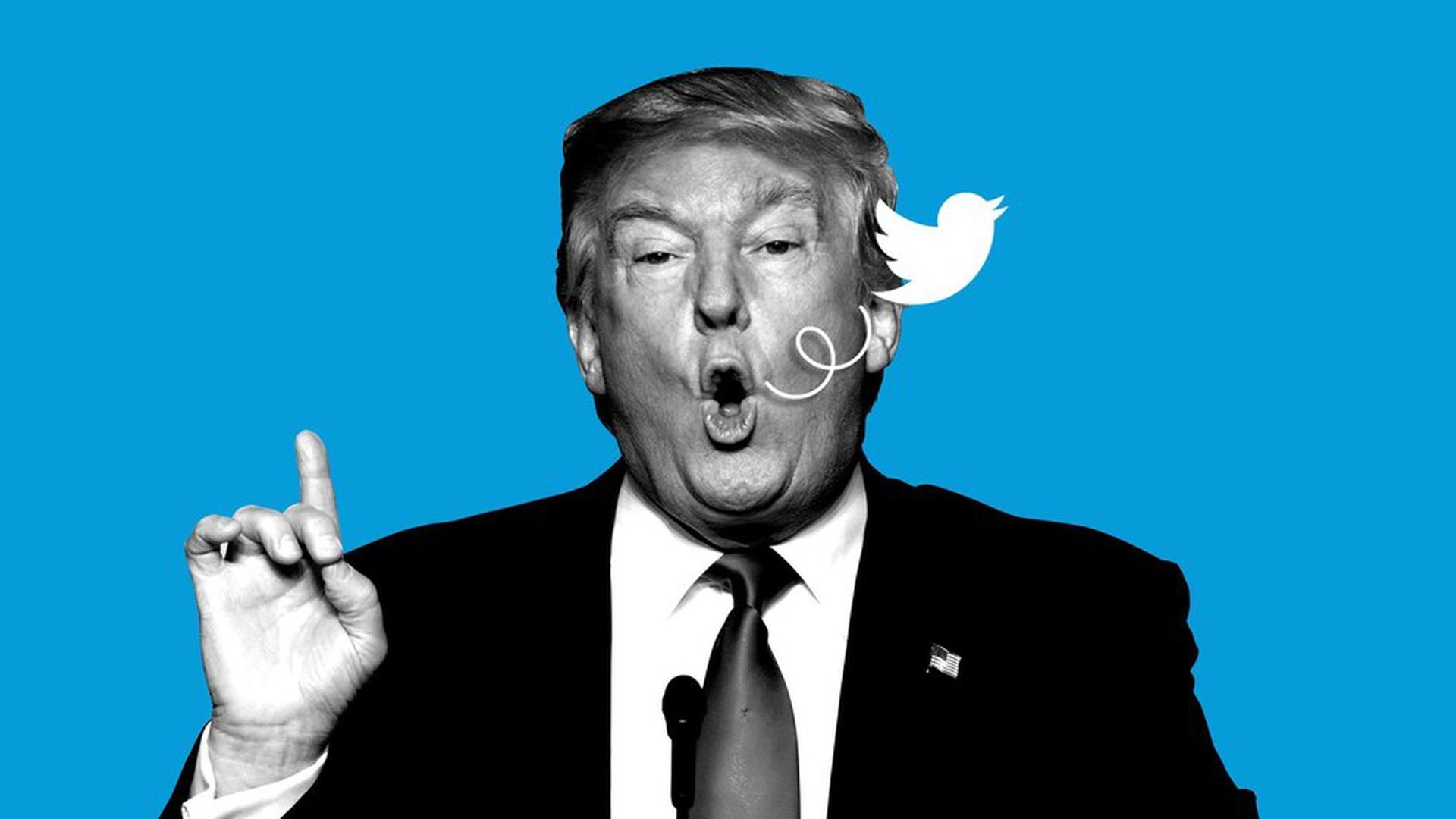Court ruling could foreshadow new Twitter rules for Trump
Add Axios as your preferred source to
see more of our stories on Google.

Illustration: Lazaro Gamio / Axios
A Virginia court ruled Monday that government officials can't block constituents on social media accounts that they use for official business.
Why it matters: The case has big implications for an upcoming circuit court case on whether President Trump can block voices he doesn't like from his official @realdonaldtrump Twitter account, a practice that the White House has defended since he took office.
Background: Smaller district courts around the country have been dealing with these issues for years on the local level. But circuit courts, which are more prominent and deal with more hotly debated issues, haven't taken on this issue until now.
- In March, a district court ruled that Trump violated the First Amendment by blocking people on Twitter. Now it's going on appeal to the Second Circuit, higher in the federal court system.
The big picture: Monday's court decision basically says that the First Amendment, which prohibits government censorship of real-life communications, also applies to online platforms.
“Public officials, who increasingly use social media accounts as public forums to foster speech and debate among their constituents, have no greater license to suppress dissent online than they do offline.”— Katie Fallow, senior staff attorney at the Knight Institute, who argued the case on appeal
What happened: The Fourth Circuit Court ruled that a local county official in Virginia violated the First Amendment rights of one of their constituents by blocking (and then unblocking) them on a Facebook page that the official had declared as a space used to discuss official matters.
- The court argued that access to government officials' social media accounts should be treated the same way as access to physical public forums such as town halls in which the government communicates with people, where no one can be blocked from participating.
What's next: The next circuit court to decide on a case like this will be the Second Circuit of Appeals in New York, which will decide — likely by this summer — whether the President has the right to block constituents using his Twitter handle.
- The White House has argued that the @realdonaldtrump Twitter handle, which was created before the president ran for office, is not his official @POTUS45 government handle, and thus the president has the right to block whoever he wants.
- The plaintiffs in the case, i.e., those who have been blocked, argue that the White House has used the @realdonaldtrump Twitter handle for official communications and thus censorship rules should apply to that account.
Be smart: Legal experts point to examples in the past where White House officials have declared statements from the @realdonaldtrump handle to be official statements from the President.
Bottom line: Monday's ruling could foreshadow the outcome of the next circuit court ruling because circuit courts tend to look at "sister circuits" when evaluating related cases, said Joshua Geltzer, Executive Director of the Institute for Constitutional Advocacy and Protection at Georgetown Law Center.
Yes, but: There is a chance that next appeals court could distinguish the case before it based on the particular facts, or take a different view of the law and rule that social media can't be treated the same as physical forums. In the latter case, it's possible the issue could find its way to the Supreme Court.
